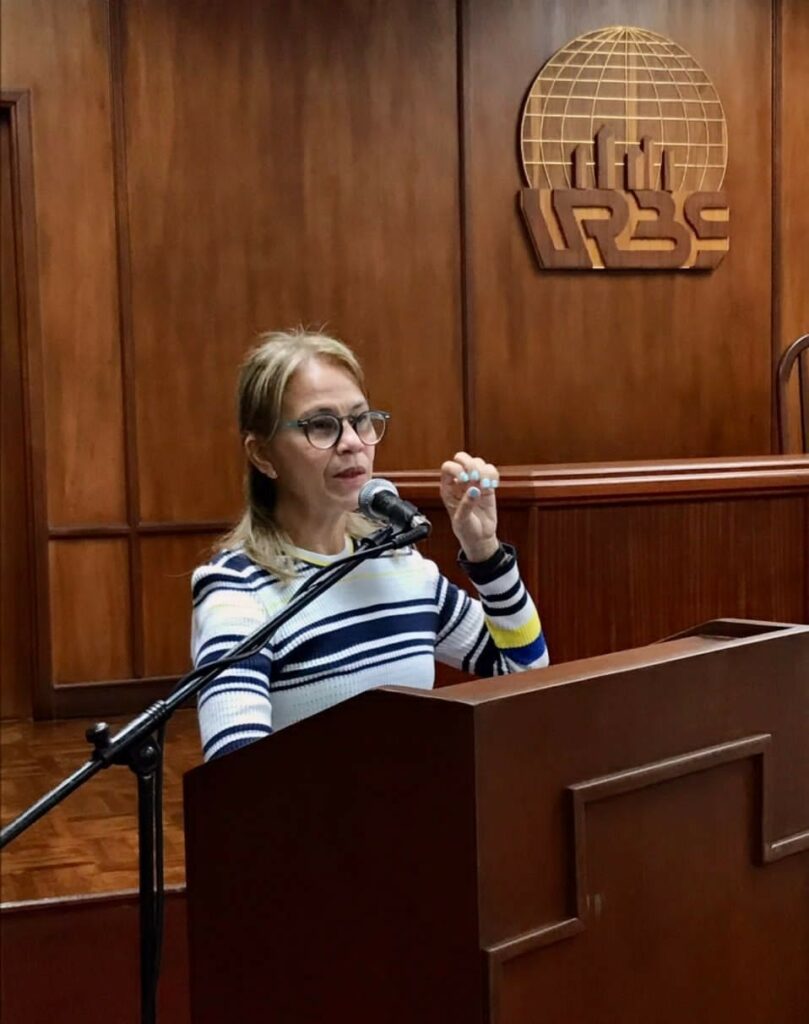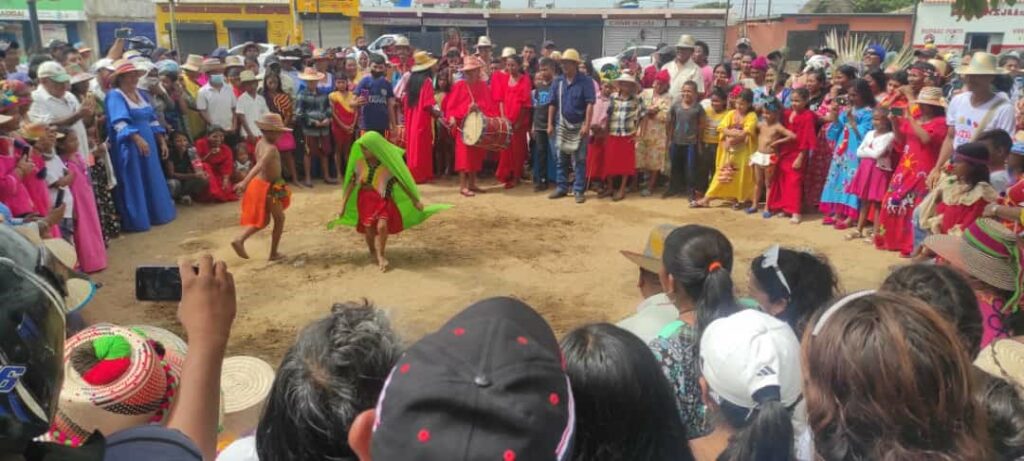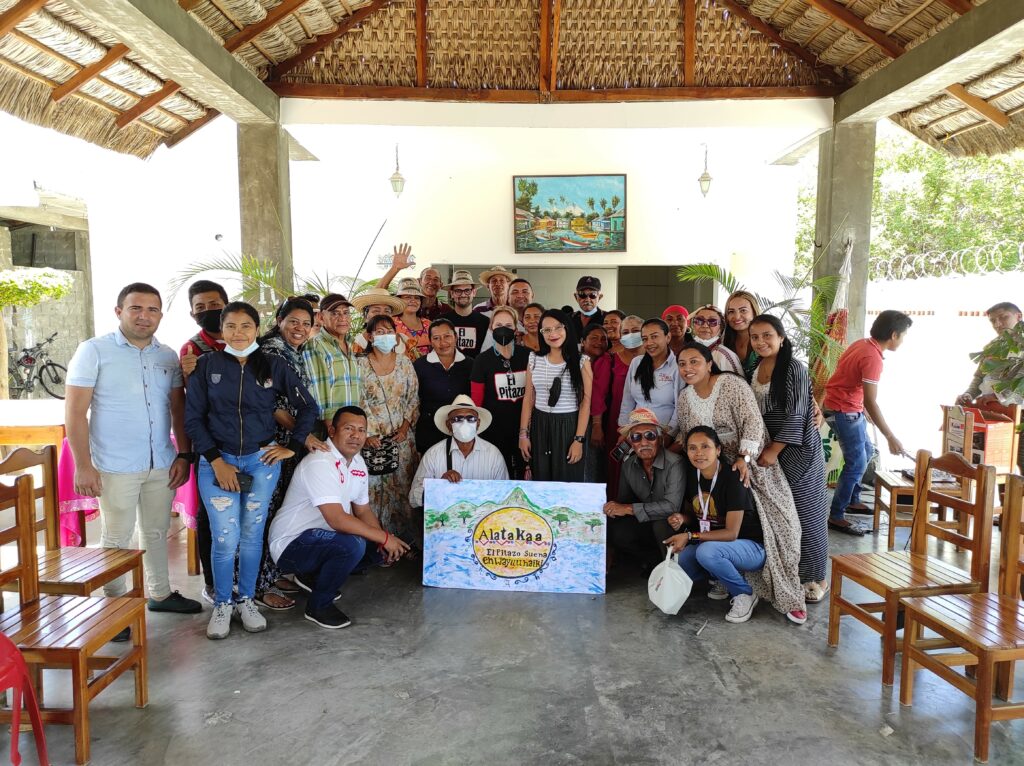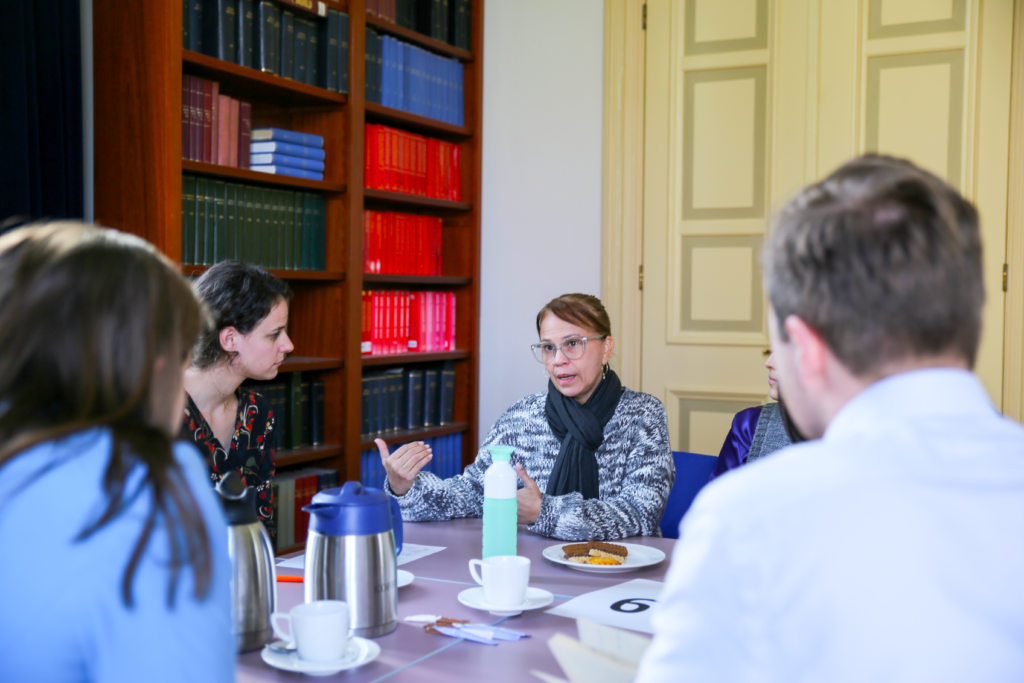Stories
June 6, 2023
Sheyla: “Freedom is my favourite word”
Written in Spanish by Sheyla Urdaneta
English version edited by Connor McMullen
Sheyla is a journalist from Venezuela. She stayed in Shelter City Haarlem in 2023, with the support of de Pletterij and the municipality of Haarlem. In honour of World Press Freedom Day, she delivered this story in person on 13 May, 2023 at the Stads Oase Spinozahof in The Hague during a storytelling event organised by Dutch International Storytelling Centre (DISC) in collaboration with Justice & Peace Netherlands.
I am Sheyla Urdaneta, I am a journalist, and a woman: a double risk in Venezuela, where liberty of expression and press are constricted.
That is how the government shut down independent media outlets in the country, where there is now only one public broadcast that should be for all of the citizens, but its only use is for political propaganda. Imagine a country where citizens can’t find out what’s going on, only what the government wants them to know.
For this reason, journalists in Venezuela decided to unite and create our own broadcasts because the government expropriated, closed, and bought out private media. As part of this community, I work alongside a team of 50 people for one of the independent media outlets in Venezuela. We are called El Pitazo, and our slogan is: “make noise where others keep quiet”.
Imagine a country where citizens can’t find out what’s going on, only what the government wants them to know.
We have been working for eight years, but it has not been easy. The government, inconvenienced after an investigation that we released about the first lady’s nephew being the one managing the finances in the country, blocked us with the purpose of censoring us. This is the reason no one in my country has access to El Pitazo. The only way to enter our website is by using a VPN, and we are not the only ones, many independent media outlets are going through the same.

I am the head of investigation at El Pitazo, but that is not my only job. In Venezuela, journalists cannot only have one job. We must find other options because minimum wage in Venezuela does not cover even fifteen per cent to buy groceries, and this is with the last raise by the government on the first of May. This is why during my second week in the Netherlands, I was shocked by the fact that two coffees cost the same amount of money that the average Venezuelan makes in a month.
Alongside my work at El Pitazo, I am also a collaborator for The New York Times in Venezuela, and a correspondent alongside other female journalists in an organization called Monitor de Víctimas, in which we register homicides, extrajudicial executions in Venezuela, and femicides. I also collaborate with international journalists on Venezuelan stories. Partners have included Argentinian photographer Rodrigo Abd, who recently won his second Pulitzer for his photos of the Ukrainian war, and Fabiola Ferrero, the first Venezuelan woman ever to win a World Press Photo, who in March 2023 I visited for the award ceremony in Amsterdam since she won for pictures from a project we worked on together.
Even though it sounds overwhelming, being a journalist is what I like the most in life, after being a mom. I have a daughter and it is just the two of us living in Venezuela. The rest of my family lives outside of the country. They migrated, part of the 7 million Venezuelans that had to get out of the country because of the financial crisis, political persecution, and hunger.
These are the topics that I focus and work on: gender-based violence, sexual trafficking and exploitation of women, attention to the indigenous Wayuu population in Venezuela, and defense of human rights for the sake of minorities. This is why I have been working on a podcast for the past year called ‘Alatakaa: El Pitazo sounds in Wayuunaiki’. Because we are all poor in Venezuela, but the indigenous people are the most affected.

In Venezuela, there is no water, no electricity, no medicine. We all suffer, but the indigenous people suffer the most. Their schools do not have ceilings, the kids have nowhere to sit, and the majority lack clothes and shoes. They do not have food. The Venezuelan government is only aware of this community to make them vote for them in the elections. Indigenous people say that the government uses them, then forgets.
I always say I like to bring to light those that are invisible, and they were invisible to the government.
The podcast is something they are grateful for, and it has reached the government’s ears. On occasion, they send a truck with clean water to the communities and have also made some healthcare sessions to meet their needs. They are appreciative they have told me, not only for the little they have received but for feeling heard. They feel someone is looking at them.

I always say I like to bring to light those that are invisible, and they were invisible to the government. Sure, invisible to take care of and help them, but not to exploit them. This I corroborated during an investigation that I did, where I realised that the Colombian guerrilla, in complicity with the Venezuelan military, take indigenous people of the Barí ethnicity to scrape coke for drug trafficking. I went to the place where they were taken: La Sierra de Perijá. After investigating for a few days I encountered some military men. I was arrested and taken to the government’s intelligence service. I was detained, and they threatened me with my daughter, saying they knew everything about me, and to tell them who took me to that place, and what I was told. I did not say a word, for I was not going to put those who trusted me at risk.
They locked me in a room, two men were asking intimidating questions while a third one was recording. That was the day that I had felt the most fear in my life, the day when I met the face of horror.
Freedom is my favourite word, in fact, I have it tattooed.
But journalism has also been satisfying, it is a shame to win awards for such rough, painful stories. I won the Ortega and Gasset award in Spain for an investigation called ‘La Generación del Hambre’ (The Generation of Hunger), about five-year-old kids that weighed and measured the same as the three-year-olds. Two of them passed away, they could not handle it. Two Gabriel García Márquez awards in Colombia: one in 2018 for a group investigation about migration called ‘Venezuela a la Fuga’ (Venezuela on the Run), and in 2019 for an investigation called ‘Mujeres en la vitrina, víctimas de la trata’ (Women in showcase, victims of sex trafficking).

This could be a little bit of a summary of who I am and what I do for the sake of journalism, the risks and the rewards. One of them is to be in this wonderful country where freedom is celebrated and everyone works together for it. ‘Freedom’ is my favourite word, in fact, I have it tattooed. Maybe it is my constant yearning in a country like mine, where all of the liberties are violated; the liberty of the press being one of the most attacked.
While I was writing this piece I was thinking about its closure and I remembered when a journalist was interviewing me, and asked why do I do what I do, to which I could not respond. Then, she asked: “What have you given to journalism?” To which I responded: “What I had the most at reach, my life.”
